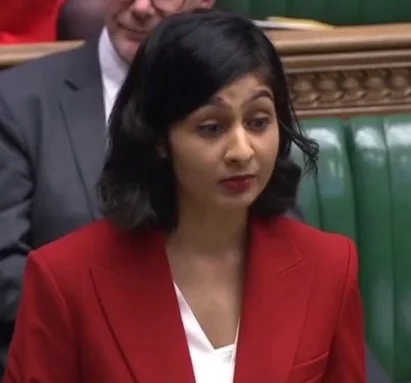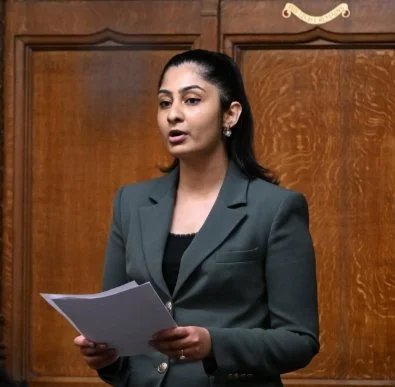You Won’t Break My Soul: Resilience, Identity, and Political Survival
A Voice That Refused to Fit the Mold
Zarah Sultana entered Parliament at twenty six with a voice that sounded nothing like Westminster. It was unvarnished, morally charged, and rooted in the everyday realities of people who rarely feel heard. Since then she has endured an onslaught of hostility that would push many out of public life. She has read racist abuse into the parliamentary record, received death threats, and been told that she does not belong in the country of her birth. She has also been stopped in the Palace of Westminster and asked to show her pass more often than white colleagues, and even mistaken for catering staff.
Through it all she has chosen to remain, to speak, and to insist that politics can be a vehicle for dignity. This is not a story about invulnerability. It is a study in resilience — the kind that grows from identity, purpose, and community.
Redefining Resilience
Resilience is often miscast as toughness. In the popular imagination, the resilient person shrugs off injury and marches on untouched. Psychology offers a different picture. Resilience is the ability to sustain purpose and recover a workable equilibrium after adversity. It is less about stoicism and more about adaptation.
In Sultana’s case, that adaptation begins with a clear moral framework. She believes that politics is about right and wrong, not simply preference. When she says she is unwilling to compromise on workers’ rights, the NHS, migrant justice, or the safety of marginalised communities, she is naming a set of non negotiable values that function as a compass. A compass does not eliminate storms. It gives direction when the weather turns.
Living Under Siege
The pressures that test that compass are severe. From the beginning of her parliamentary career, Sultana has faced a volume of racist and misogynistic abuse that is shocking even by the degraded standards of online discourse. She has read out emails calling her a danger to humanity, a terrorist sympathiser, and worse. She has spoken in tearful detail about being told to leave Britain, about threats that describe how she should be harmed, and about the grinding fact of daily hostility.
The threat environment has a real world context. Two British MPs, Jo Cox and David Amess, were murdered in recent years, which reframes the risk calculation for every representative who receives credible threats. Fear is not hypothetical for a young Muslim woman in public life. It is a practical consideration, from the security measures she must take to the way she moves through public spaces.
Purpose as a Shield
How does she continue to show up under such conditions? The core of her resilience is meaning. Sultana grounds her work in what first radicalised her — the experience of inequality and the conviction that political choices generate avoidable harm.
She remembers closed libraries, exhausted teachers, and constituents who cannot access timely healthcare. She remembers being part of the first cohort charged £9,000 tuition fees, watching parliamentary debates that made her future feel transactional, and joining protests that translated anger into agency.
Meaning acts as a buffer. When the hate arrives, she can trace a line back to the reason she is in Parliament at all. The hostility does not cancel the purpose. It underscores it.
Identity and the Power of Solidarity
Identity is the second pillar. Sultana speaks often about solidarity across lines of difference. She names Muslim brothers and sisters, Jewish comrades, and people of all faiths and none as part of a shared struggle against hate.
That inclusive framing matters psychologically. It shifts the self from an isolated target to a member of a larger community. When identity is linked to collective values, blows aimed at the individual are reframed as attacks on a movement that extends far beyond one person.
This is not abstraction. She recounts shop floor conversations with young women of colour who say that seeing her in Parliament gives them hope. Those moments describe a social feedback loop. Representation affirms belonging, belonging reinforces purpose, purpose strengthens resilience.
Owning the Narrative
A third pillar is narrative control. Sultana refuses to let hostile voices define the story of her public life. She does not deny the pain or the fear. Instead she names it, contextualises it, and links it to a larger political argument about how rhetoric from powerful figures filters down into everyday abuse.
When senior politicians smear whole communities or circulate myths about “no go areas,” it changes the texture of ordinary life for British Muslims. Sultana’s analysis is that this is not incidental. It is part of a political strategy that treats fear as a tool.
By exposing that dynamic she is not simply venting. She is reclaiming agency. The hate is not an inexplicable storm. It is a weather pattern with identifiable sources.
Practical Resilience and Everyday Discipline
Resilience is also practical. People last in difficult roles because they manage energy, build support systems, and pick their battles. Sultana’s work shows all three. She channels time and attention into causes that keep her anchored, like debt justice, workers’ rights, and the safety of communities demonised by the press.
She nurtures networks that counter isolation, from local campaigners to young digital audiences who find her on platforms where traditional political language rarely reaches. She uses humour and accessible explanations to demystify parliament and policy for people who would never sit through a debate clip.
There is also a discipline to how she responds to provocation. She confronts Islamophobia directly when it matters, but she does not allow attacks to consume her message. The focus always returns to policy, to inequality, to public services.
To receive a death threat and then redirect attention to a housing case or an NHS backlog requires emotional regulation and a carefully tended sense of proportion. It is the art of not letting the worst thing about politics become the only thing about politics.
The Psychology of Purpose
Sultana admits that the past years have left her “still trying to catch her breath.” Burnout is a real risk for leaders with high moral conviction, since the line between self and mission blurs. The very trait that makes them effective — an unwavering sense of duty — can erode recovery time.
Her coping strategies push against that risk by reconnecting her to what psychologists call intrinsic motivation. She is not motivated by institutional approval. She is motivated by the prospect of making life more bearable for people who have been told to expect very little.
Intrinsic motivation is more durable than external validation, which is fickle at the best of times and hostile at the worst.
Solidarity as Survival
Sultana insists that the fight against Islamophobia and the fight against antisemitism are part of the same struggle. That stance matters in a political and media environment that often tries to set communities against each other.
By articulating a universal ethic of safety and dignity, she refuses the trap of zero sum recognition. The moral claim is that every person should be able to live free from hatred, and that solidarity makes everyone safer.
As an identity strategy, it expands the circle of allies. As a psychological strategy, it blocks the corrosive effects of constant defensiveness. She is not here to defend only herself or her community. She is here to make a principled case for a society in which every community can breathe.
“You Won’t Break My Soul”
The moment that crystallises her approach is the one captured in her defiant statement: you will not break my soul. The line is not a denial of vulnerability. It is a pledge to resist intimidation by turning suffering into fuel.
Pain is acknowledged, framed, and then repurposed to propel action. It is not endurance for its own sake. It is endurance in service of a mission.
In that sense the line is both personal and collective. It says that one woman will not be silenced, and it invites others to find the same posture.
Lessons in Resilient Leadership
What does Sultana’s example tell us about resilient leadership in hostile times?
First, values must be clear enough to withstand pressure.
Second, identity must be anchored in community rather than performance.
Third, leaders need practices that renew energy and sustain focus.
Fourth, they must insist on defining their own narrative.
Finally, resilient leadership depends on hope — not soft optimism, but a stubborn belief that ordinary people can change the conditions of their lives. For Sultana, hope is not a mood but a method. It tells her what to do next, even when the atmosphere is poisonous.
Simply Put
There is a cost to courage, and Sultana does not hide it. She names the fear and the exhaustion that come with public abuse. Then she does the thing that keeps her going. She reconnects with the people who remind her why she is there — the constituents and campaigners and young women who tell her that her presence matters.
She returns to the idea that millions share her principles, even if they do not have a microphone. And she returns to the knowledge that every time she stands up again, she makes it a little easier for the next person to do the same.
You will not break my soul is not a boast. It is a working promise. It binds Zarah Sultana to a way of doing politics that treats dignity as non negotiable. It reminds us that resilience is not the absence of wounds. It is the decision to move forward with integrity in spite of them.
Related Articles:
The Making of a Moral Politician → personal psychology meets moral development.
You Won’t Break My Soul → resilience and mental endurance in the face of hate.
The Double Bind of Diversity → intersectional identity and the politics of perception.
The Cost of Courage → the psychological toll of hate and its impact on democracy.
From Coventry to New York → comparative political psychology, transnational ethics, and identity.
Sources
Zarah Sultana: “You won’t break my soul”









